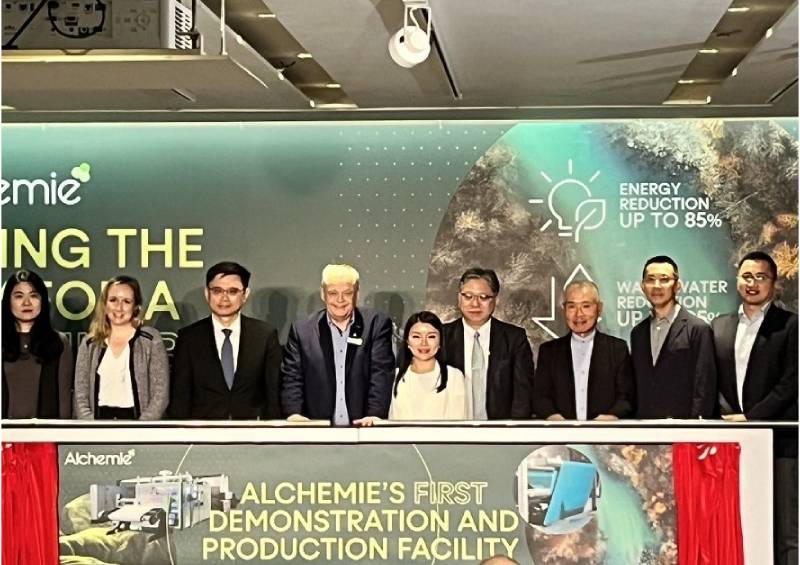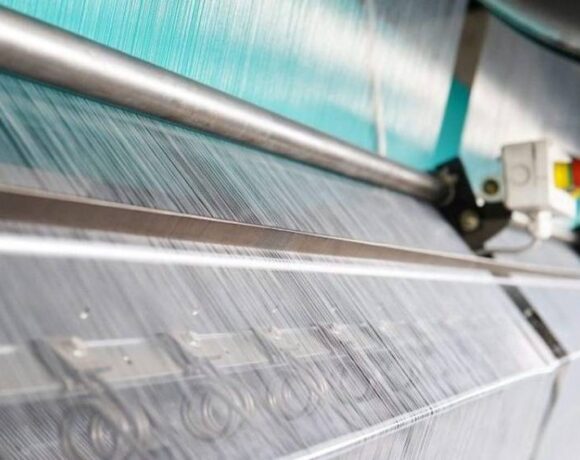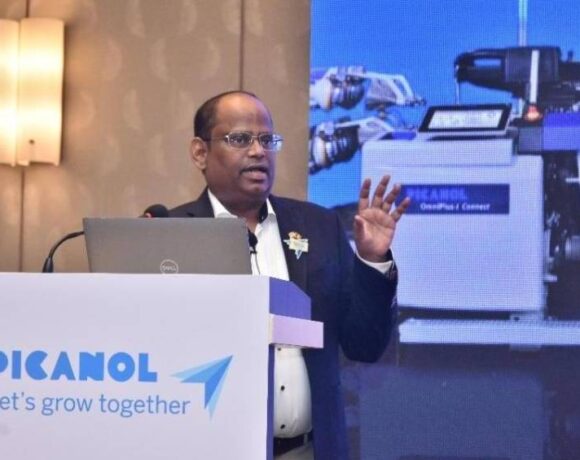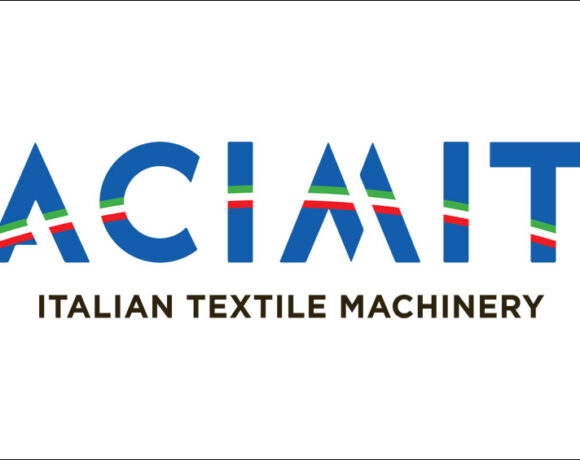Dry Dyeing Technology Pioneer Alchemie Opens Taiwan Facility

Clean digital textile dyeing technology pioneer Alchemie Technology has opened its first in-market production and demonstration facility in Nantou, Taiwan, dedicated to woven polyester.
“Alchemie’s low carbon Endeavour dyeing process delivers significant sustainability benefits when compared with traditional dyeing processes,” the Cambridge based company said in a press release.
It facilitates the transition from wet dyeing to dry processing, resulting in a substantial reduction of up to 85 percent in carbon emissions and a decrease in waste water of up to 95 percent.
The unveiling of the hub in Taiwan comes after a decade of technology development and is a major step forward in Alchemie’s mission to eradicate pollution from textile dyeing and finishing processes.
Alchemie’s Taiwan facility focuses on polyester woven fabrics and the company will include development of in-market production solutions for cotton woven and knits, as well as polyester with elastane.
Alchemie’s Endeavour low carbon digital dyeing production is a true end-to-end process solution beginning from virgin fabric intake to fully fixed and softened fabric colouration output.
“The Endeavour process ensures seamless digital dyeing, delivering high-quality results at every stage of production,” Alchemie added
“In light of the industry’s staggering contribution of 2.1 billion metric tons of carbon emissions, equating to over 3 percent of global emissions, there is an urgent need for action,” CEO Dr Alan Hudd said.
“As the world increasingly prioritises environmental conservation, energy efficiency and carbon reduction, there’s a growing demand for low carbon dyeing technology,” Dr Hudd added
A traditional jet exhaust dyeing process uses large volumes of hot water, at temperatures of up to 135 degrees, for both dyeing and washing, requiring large amounts of energy generated by burning fossil fuels to create steam.
At the core of Alchemie’s dry dyeing technology lies its patented digitally controlled piezoelectric nozzle, providing unparalleled precision.
It achieves 100-micro registration of 1.2 billion drops per linear meter of dyed fabric, ensuring the highest level of accuracy.















